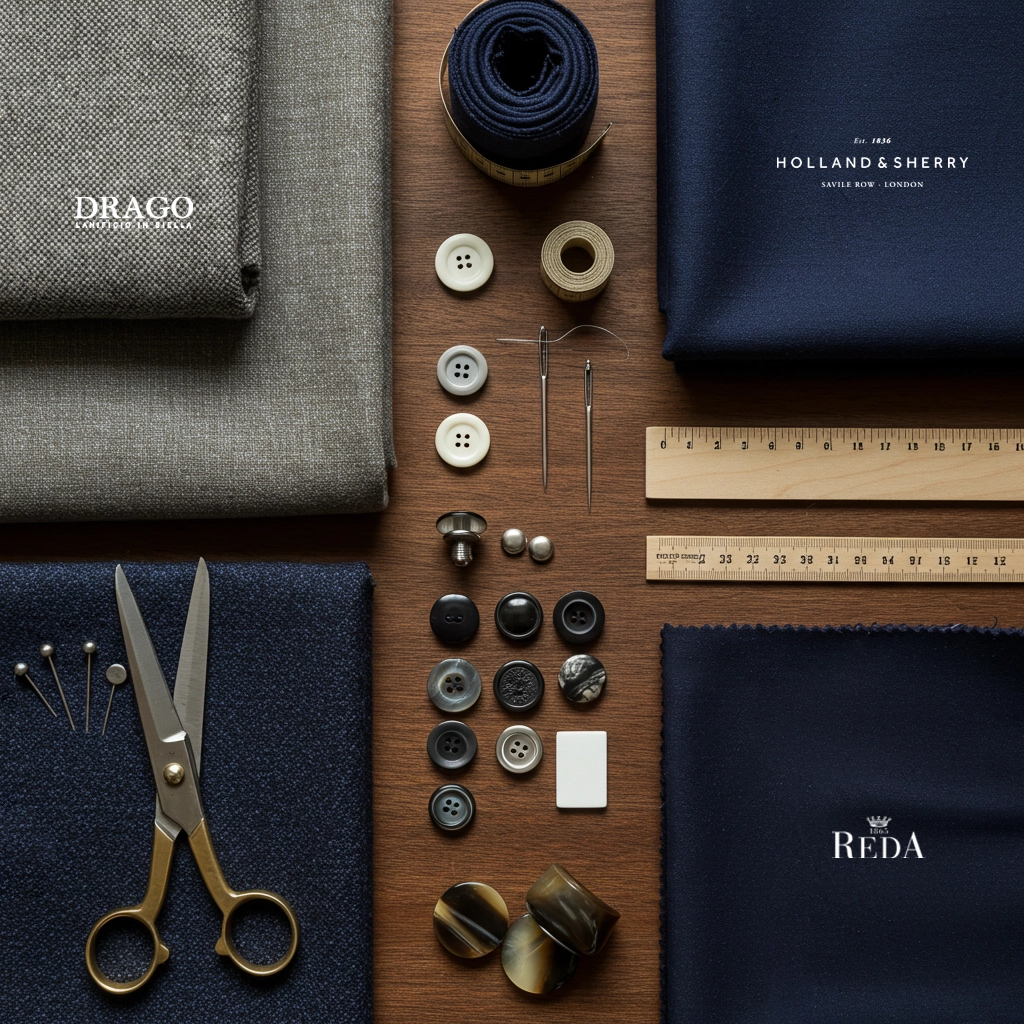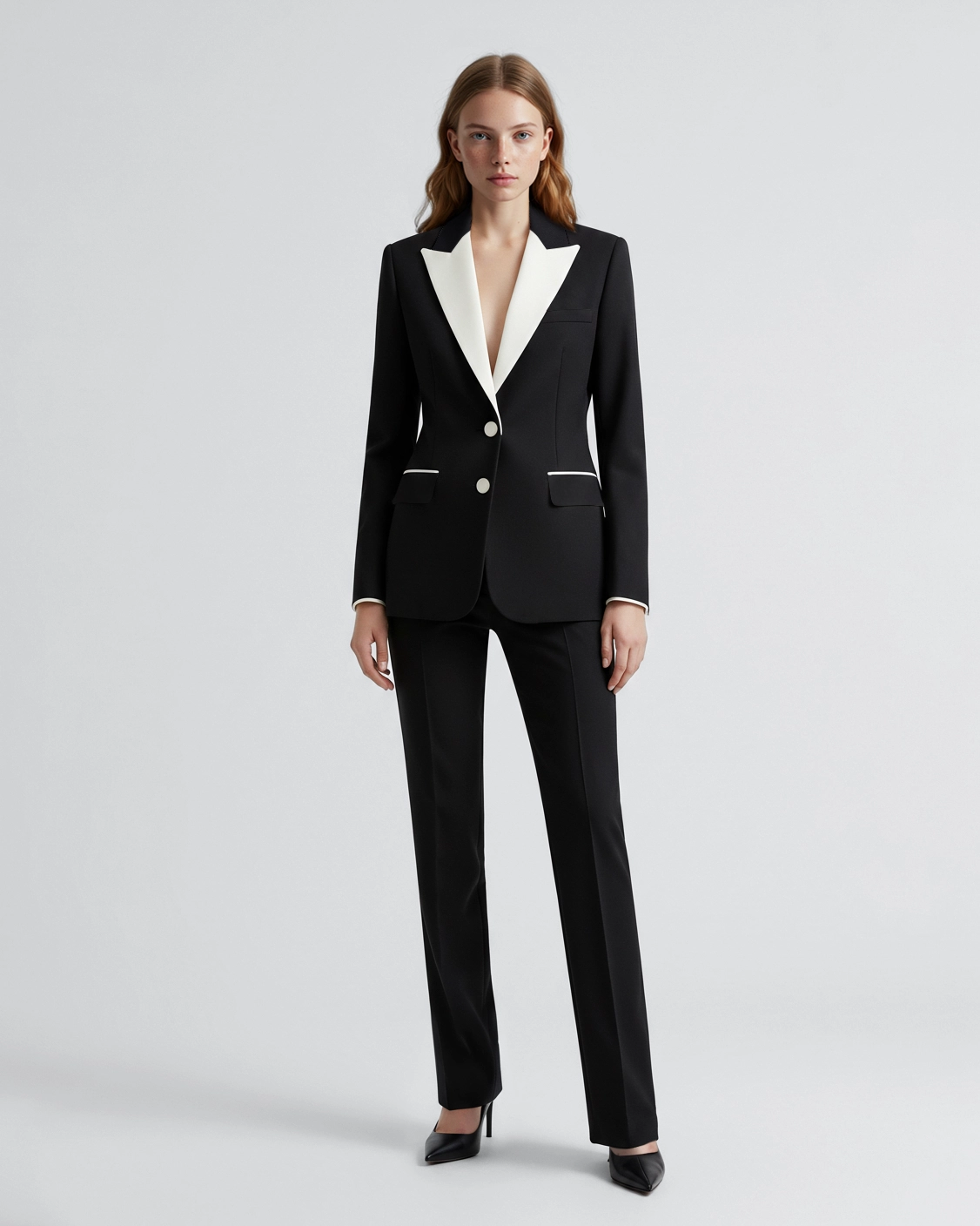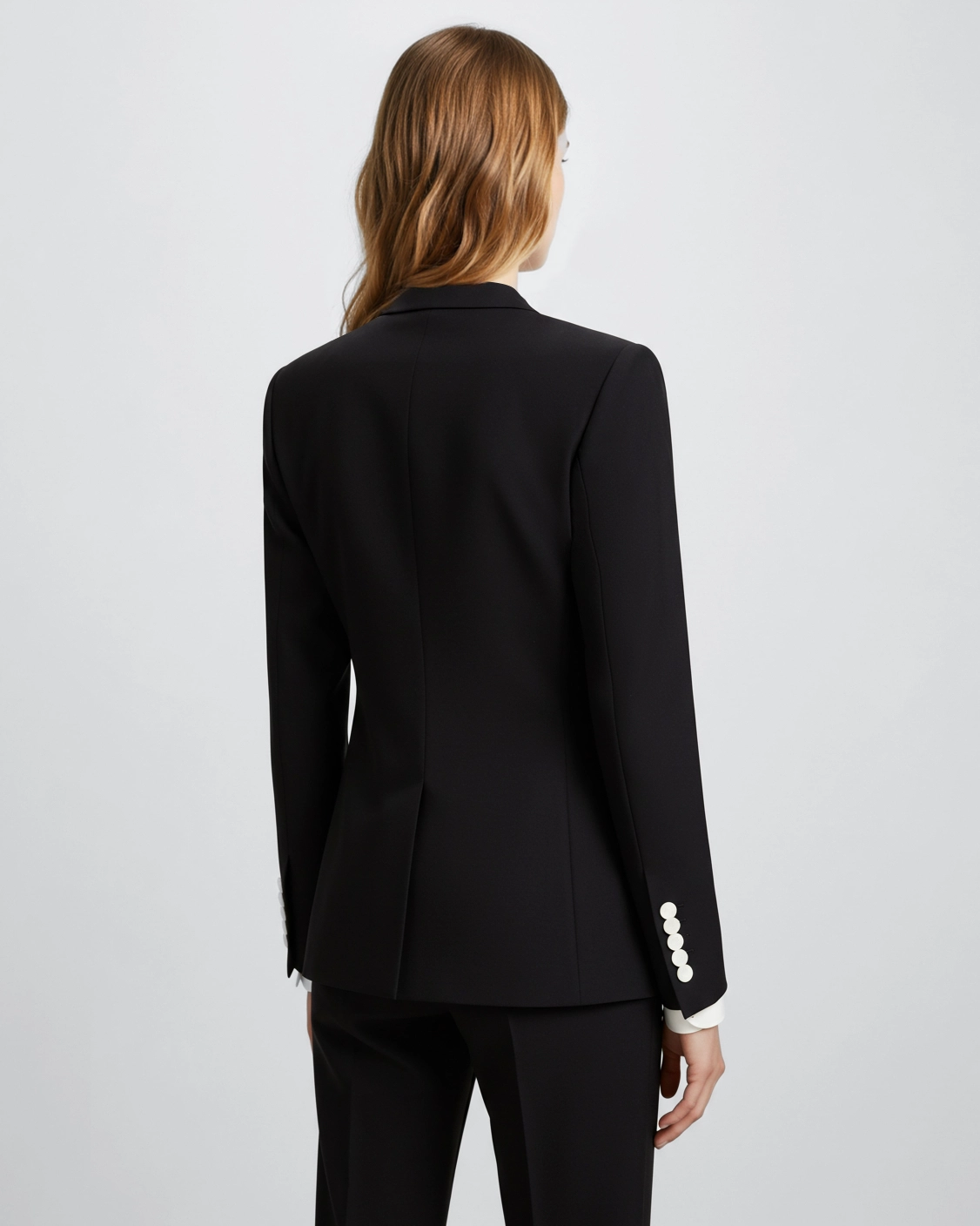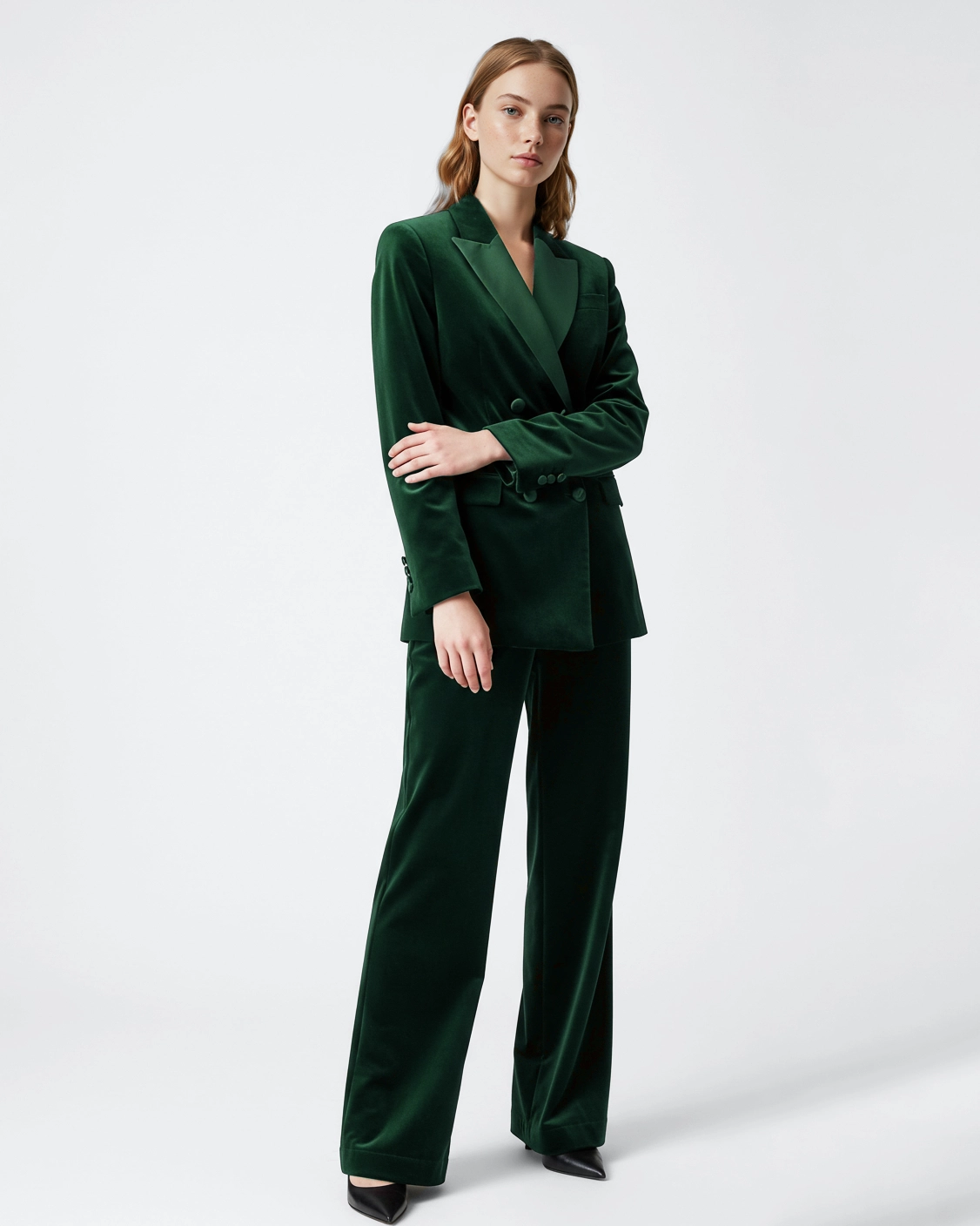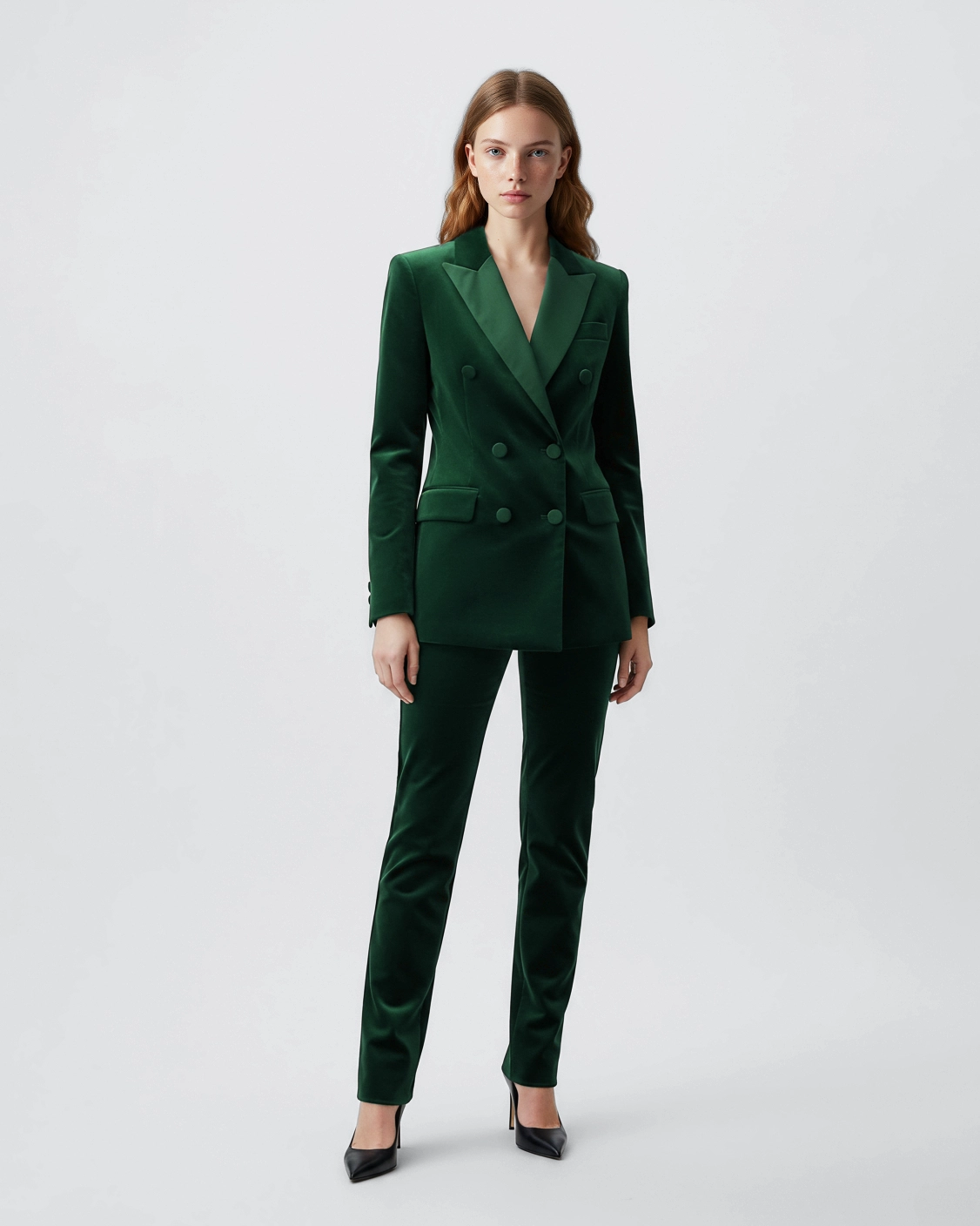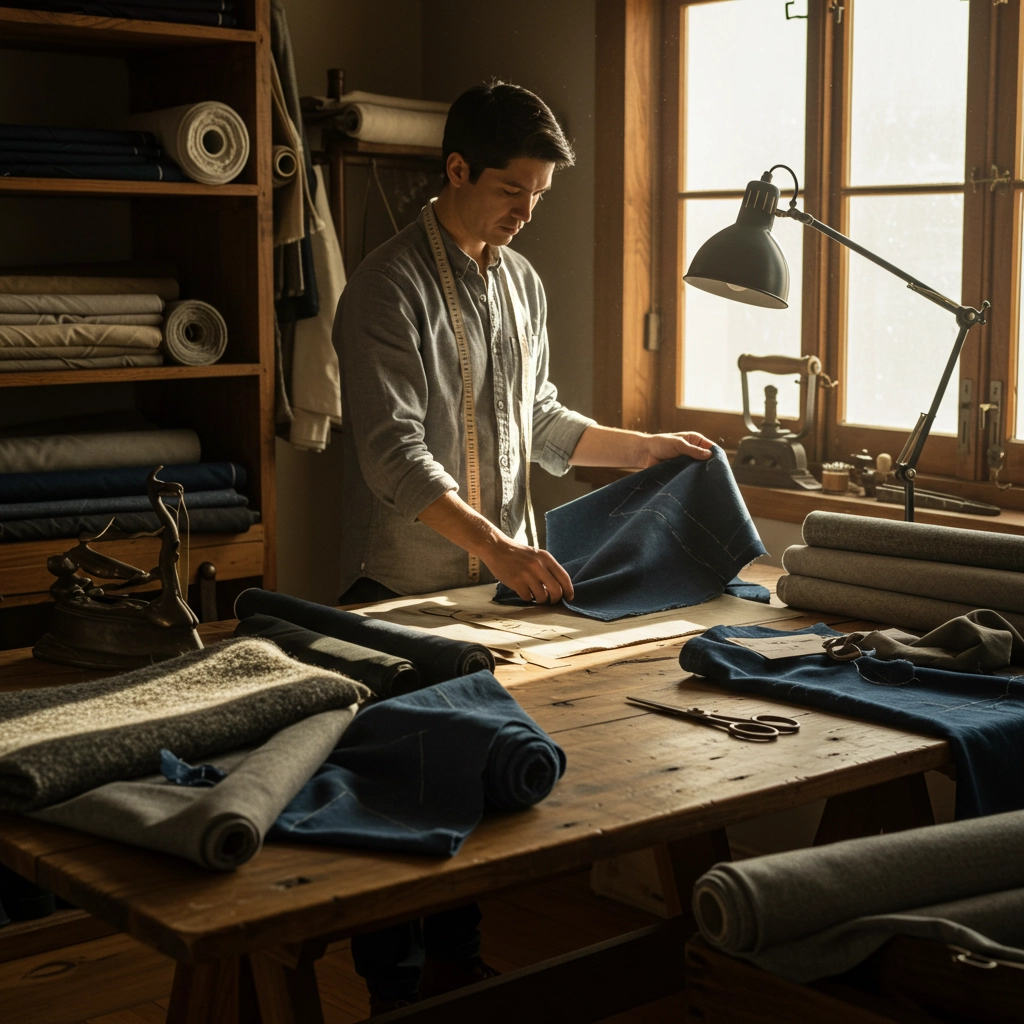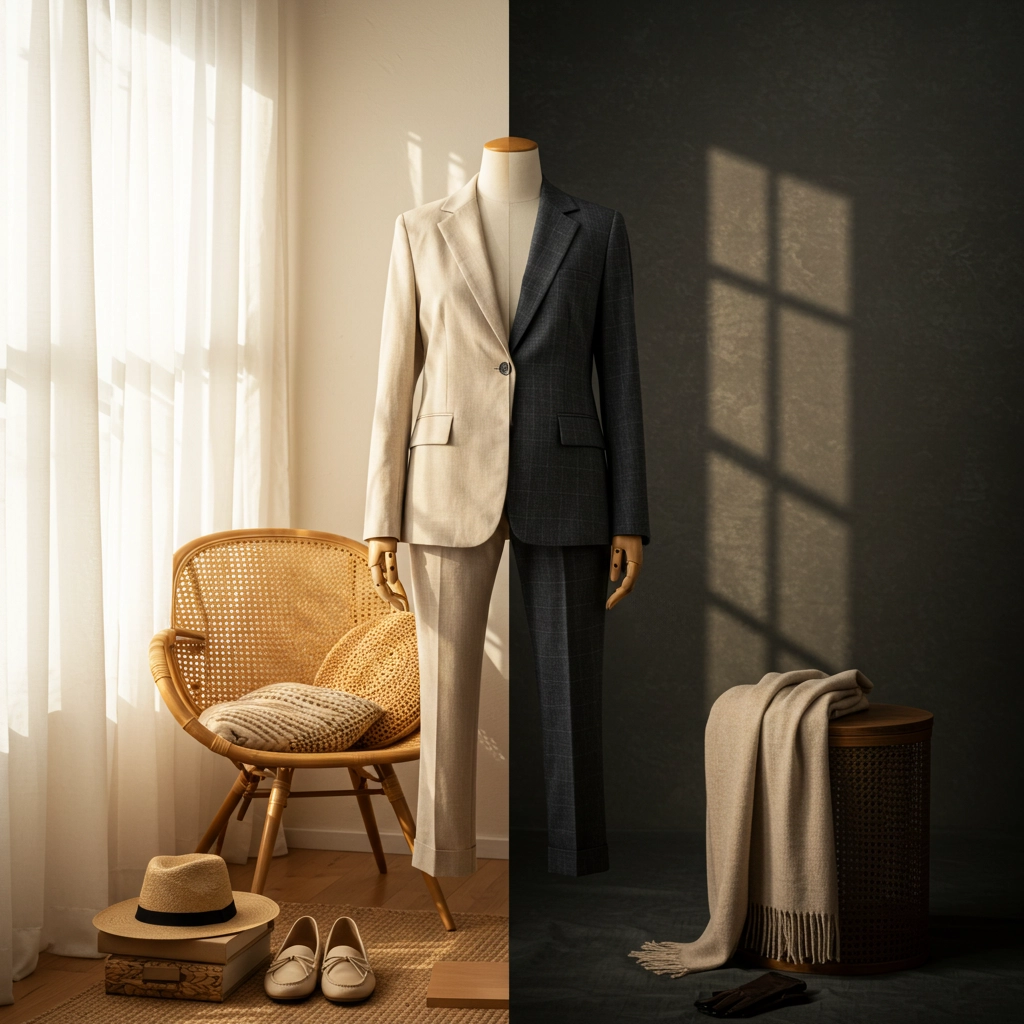What Fabrics and Materials Are Used in Bespoke Tailoring?
Ever wondered what makes bespoke tailoring feel like a second skin-or look like it was made for royalty? It all boils down to the fabrics and materials, the unsung heroes of every stitch. For customers who are new to bespoke tailoring, it is difficult to get a feel for how to choose fabrics for the suit with just a small piece of cloth in the catalogue. This ultimate guide will break down some tips for choosing fabrics and materials that turn a suit into a masterpiece.
Why Fabric Selection Matters in Bespoke Tailoring
Choosing the right fabric for a bespoke tailored suits impacts not only the look and feel but also the functionality of the garment. Here’s why fabric selection is essential:
- Comfort & Breathability: High-quality fabrics enhance comfort and allow the skin to breathe, making the suit wearable for long hours.
- Durability: Superior materials extend the lifespan of a bespoke suit, making it a wise investment.
- Aesthetic & Texture: The right fabric enhances the overall style and finish of your suit, ensuring a polished and professional appearance.
- Seasonal Suitability: Different fabrics cater to different climates, offering warmth in winter and breathability in summer.
- Ease of Maintenance: Some materials require special care, while others are more resistant to wrinkles and stains.
The Most Popular Fabrics Used in Bespoke Tailoring
1. Wool: The Gold Standard of Tailoring
Wool is the most commonly used fabric in bespoke tailored menswear and women’s tailored suits due to its versatility and durability. Wool suits are breathable, wrinkle-resistant, and available in various weights.
- Merino Wool: Known for its softness and lightweight feel, Merino wool is ideal for all-season suits.
- Tweed: A heavier wool fabric, perfect for winter suits and adding texture to bespoke designs.
- Flannel: A softer, brushed wool that offers warmth while maintaining an elegant drape.
- Worsteds: A fine, tightly woven wool known for its smooth finish and durability.

2. Linen: The Ultimate Summer Fabric
Linen is one of the most breathable materials, making it ideal for summer bespoke tailored suits. However, it tends to wrinkle easily, giving it a relaxed, effortless appeal.
- Belgian Linen: Known for its exceptional quality and softness.
- Blended Linen: Often mixed with cotton or wool to reduce wrinkles while maintaining breathability.

3. Silk: The Epitome of Luxury
Silk is a luxurious fabric that adds a subtle sheen and smooth texture to bespoke garments, especially women bespoke clothing. While typically used in linings and accents, some high-end suits incorporate silk blends for added elegance.
- Mulberry Silk: The highest-quality silk, known for its smooth texture and durability.
- Silk-Wool Blends: A combination that enhances softness while maintaining a structured shape.

4. Cashmere: Softness and Warmth
Cashmere is a premium wool alternative, prized for its ultra-soft texture and insulation properties. It’s often used in high-end winter suits and coats.
- Pure Cashmere: Offers a luxurious, lightweight feel but requires delicate care.
- Cashmere Blends: Mixed with wool for added durability and structure.

5. Mohair: The Resilient Choice
Derived from the Angora goat, mohair is known for its durability, slight sheen, and resistance to wrinkles. It is commonly used for lightweight yet structured suits.
- Kid Mohair: Softer and finer, offering a sleek finish.
- Mohair-Wool Blend: Ensures both breathability and structure.

6. Velvet: The Statement Fabric
Velvet is often chosen for bespoke tuxedos and formal wear due to its rich texture and refined appearance.
- Silk Velvet: The highest quality with a natural sheen and smooth feel.
- Cotton Velvet: Offers a matte finish with excellent durability.
Bring your creative vision to life with Rosie Hong’s fabric collection.
Special Materials Used in Bespoke Suits
Beyond fabric, bespoke tailoring involves additional materials that contribute to a suit’s overall quality and comfort — whether it’s a sharp-cut jacket for men or a softly structured suit for women, every layer is carefully chosen to enhance both fit and feel.
- Canvas Interlining: A layer of horsehair or wool inside the jacket for added structure and durability.
- Silk Linings: Provides a luxurious feel against the skin and enhances breathability.
- Horn or Mother-of-Pearl Buttons: Adds an elegant touch and durability.
- Hand-stitched Lapels: Ensures flexibility and a refined finish.

Choosing the Right Fabric for Your Bespoke Suit
To select the best material for your bespoke suit, consider:
- Your lifestyle: Do you need a suit for daily wear or special occasions?
- Climate conditions: Choose breathable fabrics for warm weather and insulating materials for colder climates.
- Suit structure: Opt for lightweight materials if you prefer an unstructured suit.
- Personal style: Do you prefer a sleek, polished look or a more relaxed, textured appearance?
To wrap up
Ultimately, the fabrics and materials in bespoke clothing define the essence of style, comfort, and who you are. Wool offers timeless strength, cotton brings effortless lightness, and linen — especially favored by women in tailored suits — adds breathability and relaxed elegance, perfect for summer despite its natural tendency to wrinkle. Bespoke tailoring sidesteps fleeting trends, crafting something uniquely yours with every stitch. When you choose your next bespoke garment, consider that the fabric doesn’t simply shape the garment, it shapes your experience.


